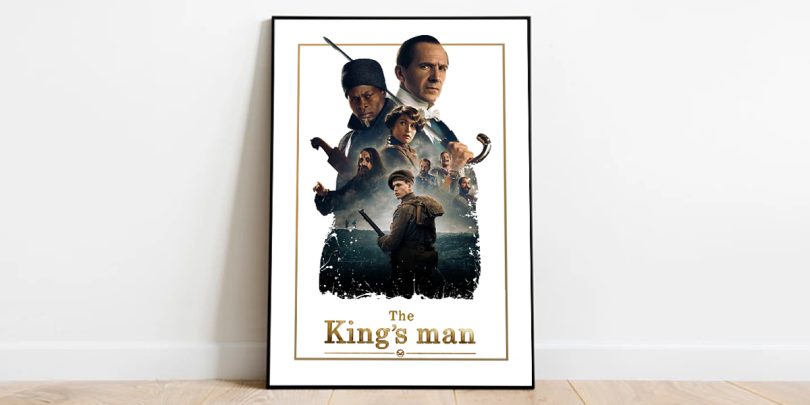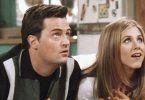What was the creator of the Kingsman franchise thinking when he came up with the story of the series’ prequel? Was he hoping to cash on the success of the series where action sequences were different, where the good guys were super-secret agents, and where ‘manners maketh man’ was the motto? Because if he intended to do that, he failed miserably, as his The King’s Man seemed more like a collection from his checklist than a film from the successful franchise.
What began as a period drama had hints of every great Hollywood flick featuring an Englishman in the lead such as Lawrence of Arabia, Mary Poppins, The English Patient, followed by recent war flicks like Dunkirk and 1917, with bits and pieces from Tom Cruise’s Mission Impossible series. With so many films rolled into one, it came out as a confusing thriller that was neither here, nor there. Veteran actor Ralph Fiennes tried to keep it together but first, he looked misfit to play someone like 007 after playing his boss M (in James Bond films), and second, his last leading role was in The Reader that came out in 2008!
With a misfit actor playing the main lead, and a combo of famous actors playing caricatures of famous evil men and ‘woman’ from the first World War days, Matthew Vaughn’s The King’s Man was always going to be a disaster. It tried to be as cool as The Crown, as adventurous as the Indiana Jones franchise, as sophisticated as The Avengers (the Ralph Fiennes one), and as world-saving as the James Bond series, but fell flat before taking off. For that, you have to either be a bad director, or a disinterested one, and Matthew Vaughn belonged to the latter category.
Yes, he could have been a Bond director in an alternate universe but that doesn’t mean that The King’s Man should serve as that alternate universe. Here Ralph Fiennes plays Orlando, the peace-loving Duke of Oxford, but came out as a man who was more important in the days leading to World War I than Archduke Franz Ferdinand, whose assassination was seen as a catalyst to the war. The Duke of Oxford (Ralph Fiennes) and his son Conrad (Harris Dickinson) are shown as people who like to save the world whenever they can, without being aware of the threat. That’s why the British King George (Tom Hollander) considered him a close friend, or you can say, The King’s Man. Got it?
It seems strange however that after the Archduke’s assassination, the same King – without consulting his ‘man’ – sent a message to his cousins Kaiser Wilhelm and Tsar Nicholas (also Tom Hollander) to stay calm and avoid conflict. However, his cousins who are also leaders in their own countries do exactly what they are told not to, thanks to their ‘men’, who answered to a Blofeld-inspired mystery figure in Russia. How Oxford and his team of secret agents led by Shola (Djimon Hounsou) and Polly (Gemma Arterton) then go on to end the war and save the world is what this film is all about.
After saving the world, the Duke establishes ‘The King’s Ma’ agency, but by that time most of the audience had either left the cinema or forgotten that the film was a prequel to the Kingsman franchise! One fails to understand why there was a need to have a villain who was visible only from behind, and even after the ‘yawn’ twist seemed to be twisted himself. Yes, it was to make the audience understand that the very dangerous man, feared by his equally dangerous disciples, was behind the conspiracy, but what it failed to do was convince the audience how a peace-loving British gentleman managed to defeat them all!
The King’s Man could have been a great prequel had the director made it as a prequel. The second Act was so boring that if someone in the audience woke up, he or she would have been certain that they were watching 1917, instead of the film that put him to sleep in the first place. Killing Rasputin, destabilizing Mata Hari in the act, and convincing the American President to enter the war are missions that demand three separate flicks, yet the director thought that if he could offer a three-in-one deal to the viewers, they would be thrilled. Sadly, it seemed he stayed back in the 1910s, as the audience moved into 2022, and was more thrilled after the film ended after 131 minutes!
How can the director cast an unknown Harris Dickinson as the son Conrad, which was supposed to be the second most important character in the film, and then put experienced actors Djimon Hounsou and Gemma Arterton as his caretakers? What were the reasons that made veteran actor Tom Hollander play three world-famous cousins – King George of England, Kaiser Wilhelm of Germany, and Tsar Nicholas of Russia – instead of saying no? How was the director able to make renowned actor Daniel Brühl play German clairvoyant Erik Jan Hanussen, Rhys Ifans to portray Russian mystic Rasputin, Valerie Pachner to depict Mata Hari and convince Kingsman alumni Stanley Tucci to return to the franchise, as the US ambassador? These are some of the questions that the director needs to answer, for they were bigger than the entire film, the plot of which was childish, and execution, amateurish.
‘Manners maketh man’ is how many cine-goers remember The Kingsman franchise, and it was the magic of those three words that made the audience try this flick in the days of Spider-Man: No Way Home. In the first flick, Colin Firth delivered the dialogue ‘before’ he beat the crap out of bad guys, and it seems that someone must deliver it to the director Matthew Vaughn, who either forgot what the phrase meant, or what happened after it was delivered. He should be discouraged from making another sequel of the prequel (yes, exactly!) until he realizes that the audience has matured, and he should follow suit, or perish like the antagonist in The King’s Man.







